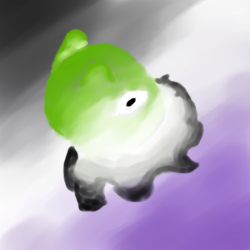For as long as I remember, I have loved villains. It’s not really a surprise. Main characters usually are pretty bland and have telegraphed romances, while villains have rich motives, a lot of drive, and are so often coded as queer (and heck, often more precisely as aromantic and asexual). I lived for Redemption Arcs and absolutely loved novels who created complex villains who weren’t Beyond All Hope.
And yet… I’ve been thinking about how and when narratives humanize villains. Who gets that privilege, in what context, etc. Specifically, I’ve been thinking of the heavy trend of gritty stories and how it so often pit equally bad people against each other, painting the world in shades of very dark gray among which any Good Character is likely to die or lose all they hold dear.
We had a panel on villains at Boréal, and one of my biggest surprise was how much into this people still were. Discussions of gray characters—of villains as protagonists opposing each other and stories without any real villains—occupied a large chunk of the discussions. And I’m not talking about flawed heroes, or even anti-heroes here: I’m talking about people doing horrible things to get to their goals, even if said goal can only be justified through twisted logic.
A lot of those gritty stories aren’t about oppressed people responding with justified violence: they are either about powerful people being awful because of their flaws (so we can “understand” their massacres) or about showing any violent response as just as bad, and how anyone oppressed acceding to power would become just as terrible.
I’m not here for defeatists narratives aimed to comfort the powerful (read white cis straight and abled men, usually) that their awfulness is universal, and which lead to the inevitable conclusion that fighting in this individualistic society is pointless. And no, not all stories with complex villains lead there, but this narrative has been so prevailing recently, I wanted a break from it.
And I wish people took a closer look at which villains they want humanized—who, exactly, do you feel must have a backstory justifying destructive self-centered behaviour and overblown reactions to slights. Because somehow, ‘born into power, told he deserved power, never truly punished for abusing that power’ isn’t sufficient (yes these two lines are absolutely about Avenazar). We have become so used to humanizing villains we can no longer accept some people seek power for the sake of it—some people believe that if you can take it, then you deserve it. And, worse, the system backs them up.
So if you wonder why I decided not to dig deeper into Avenazar, that’s why. Would it have made for a better story? I don’t know. Modern narrative expectations certainly dictate so. But I am perfectly fine with my decision not to explore him in too much details (just as I accept not everyone thinks this is good), especially since so much of Isandor’s antagonistic forces come either from other protagonist or the city’s political set-up.
Isandor will have plenty of time for more complex villains, and I don’t plan on abandoning stories built around opposing shades of gray. There is fertile ground there for nuance and feels. It’s just–even in a layered and complex universe, some things are black and white, and should remain so.
